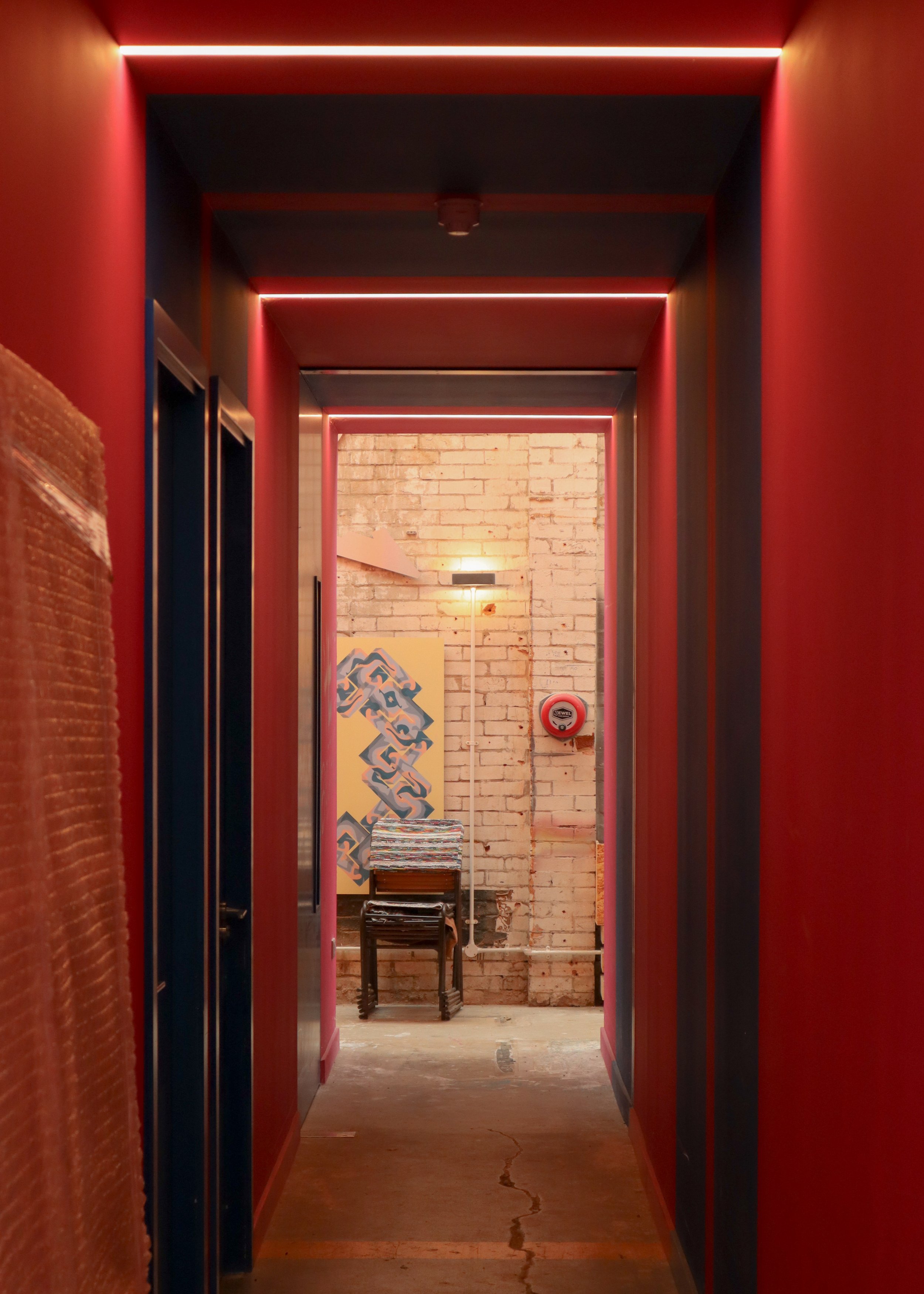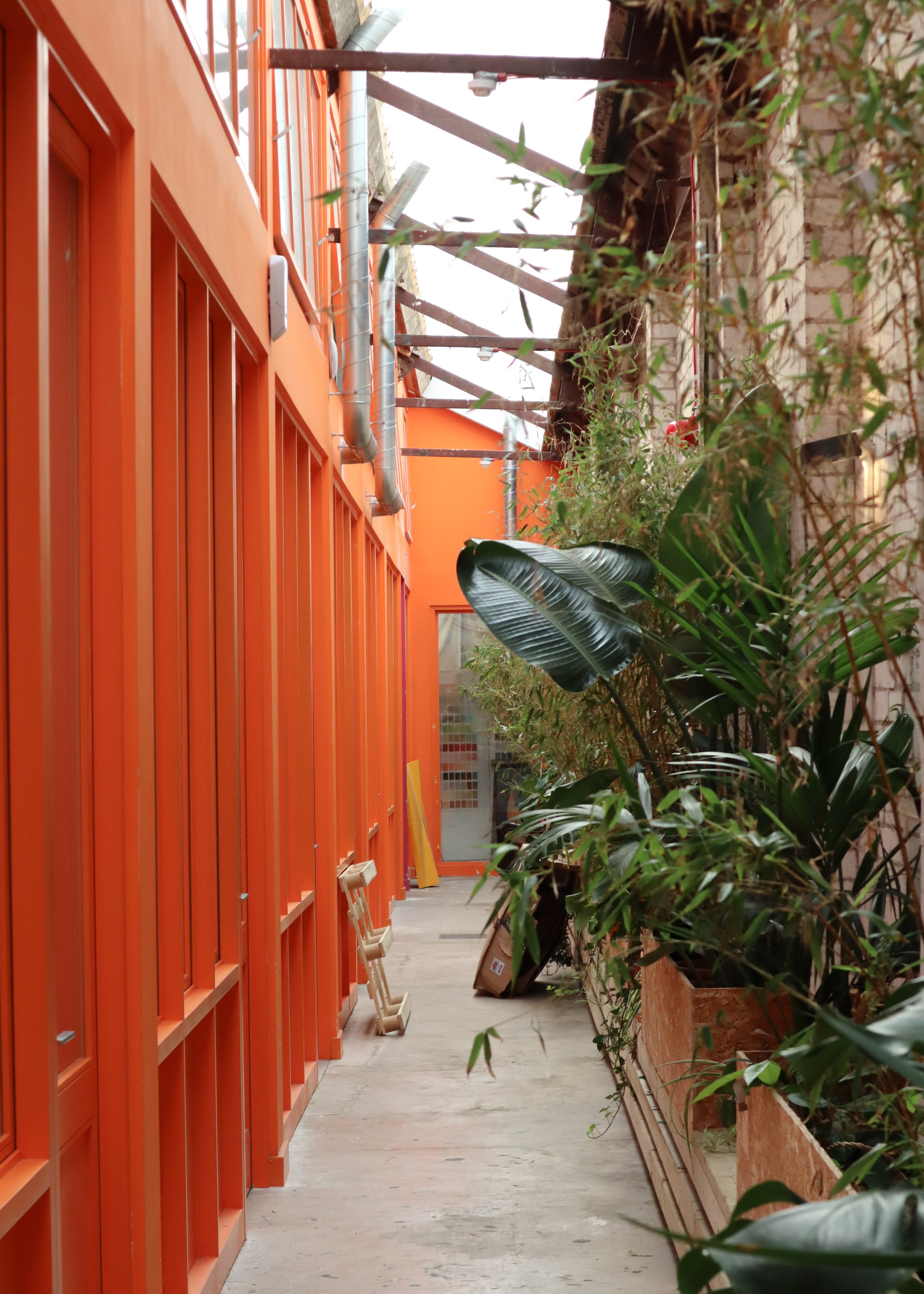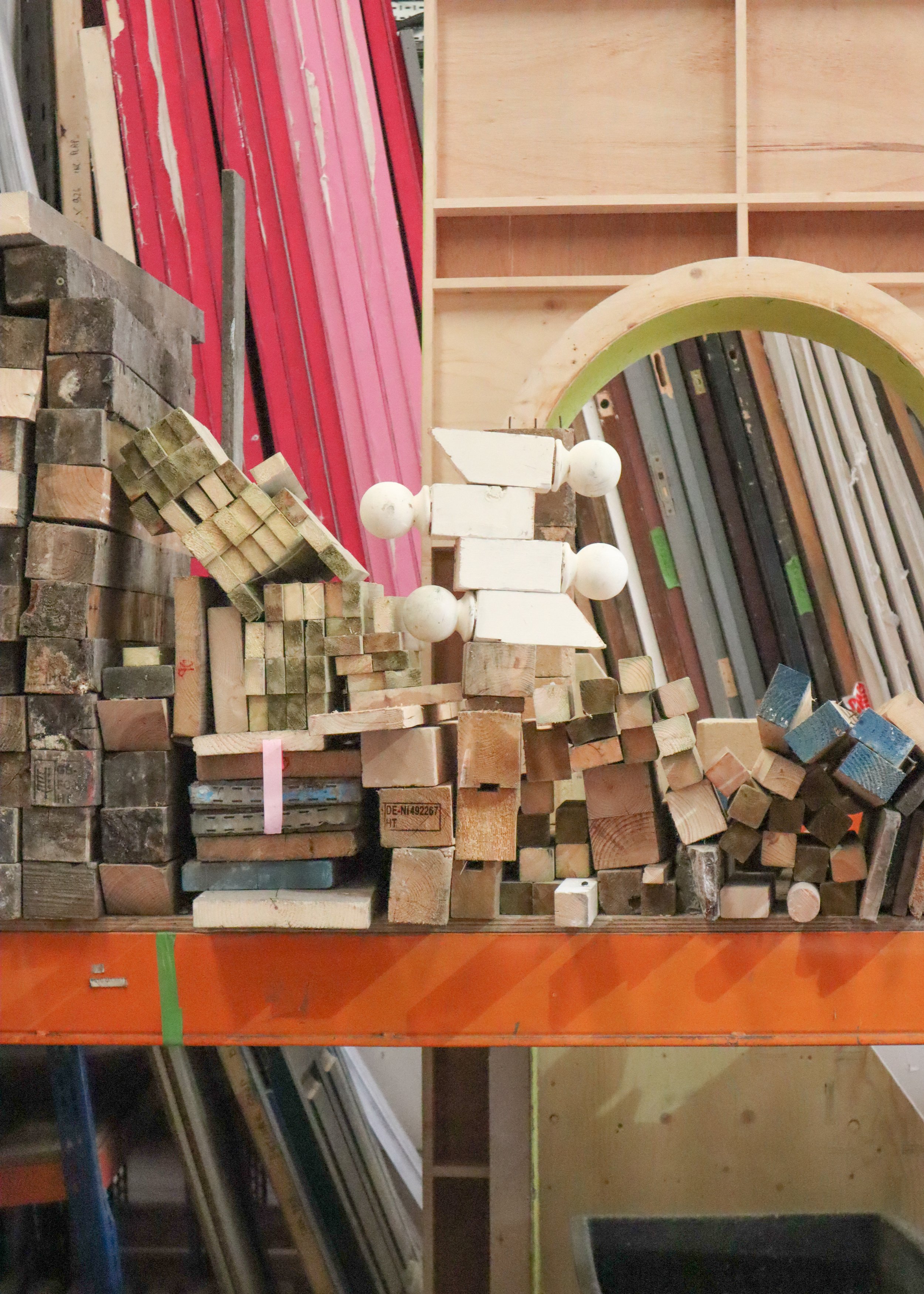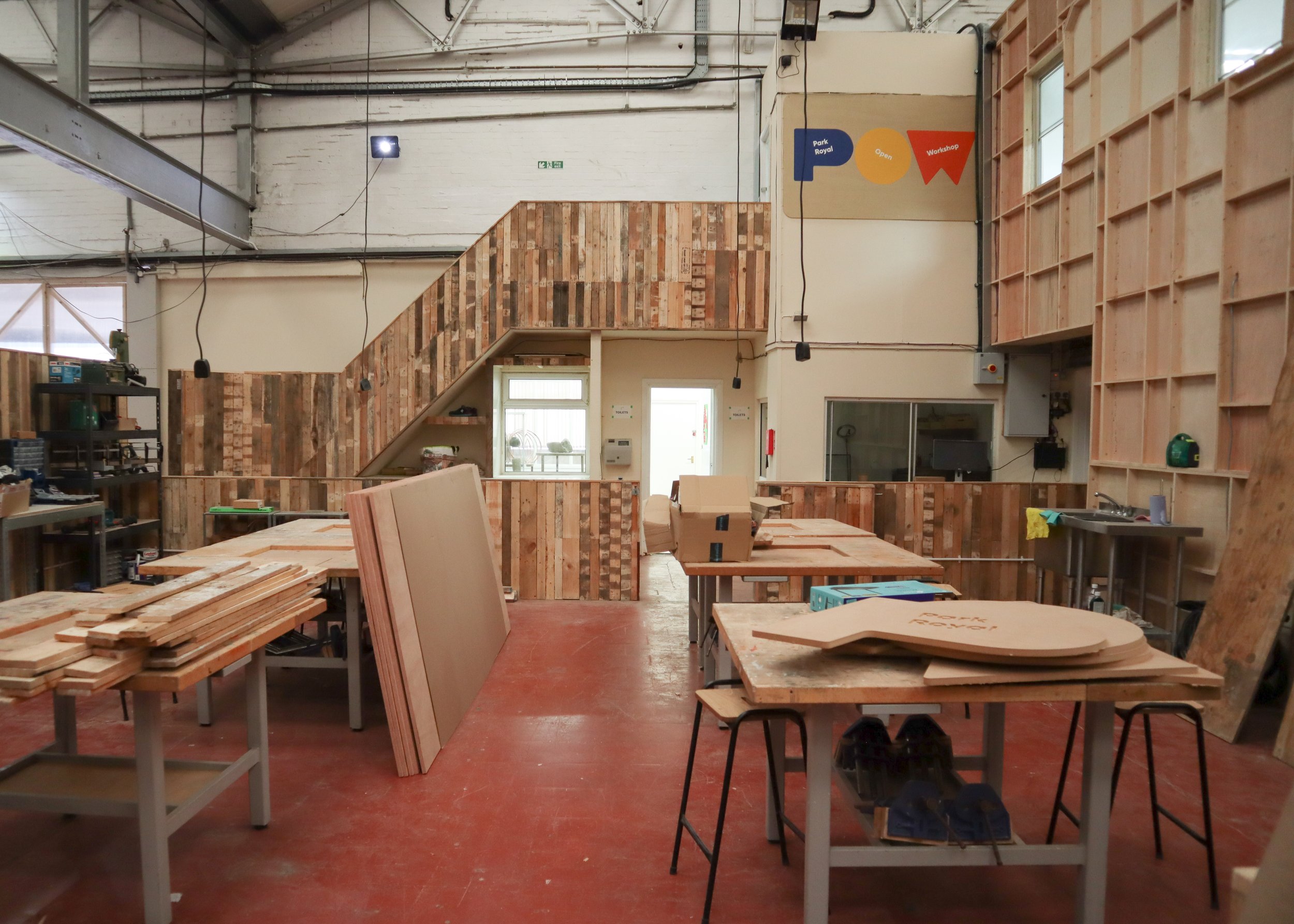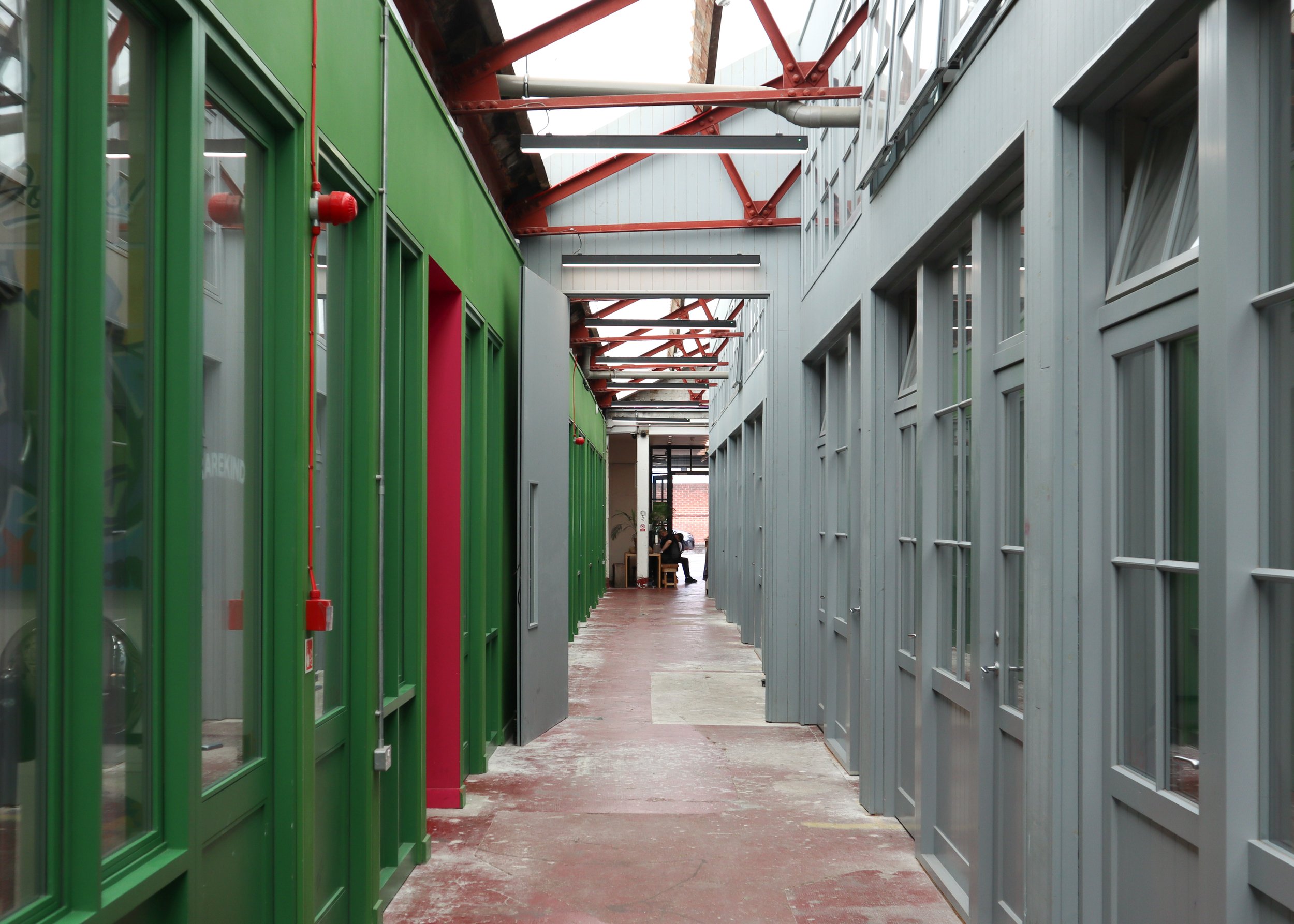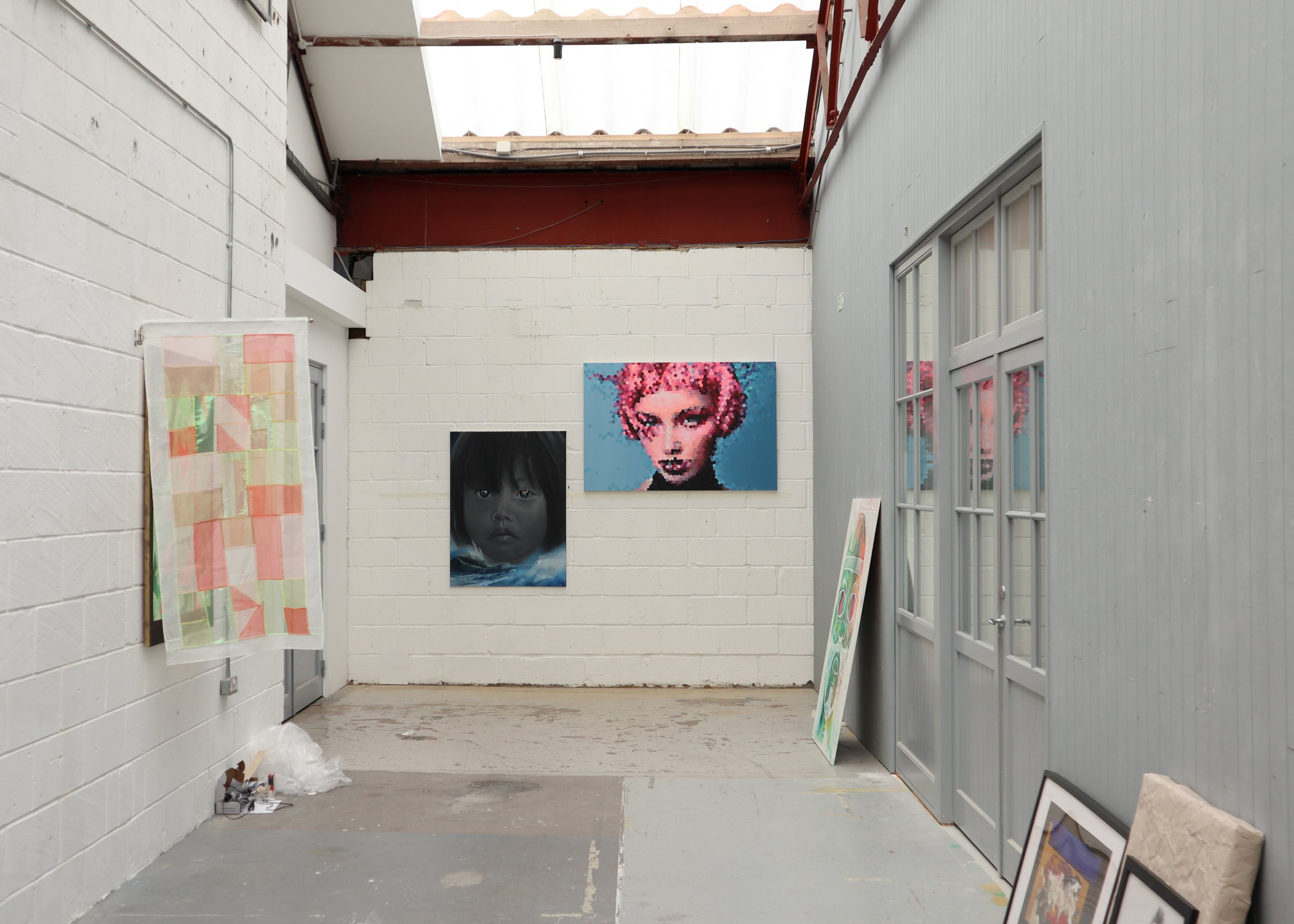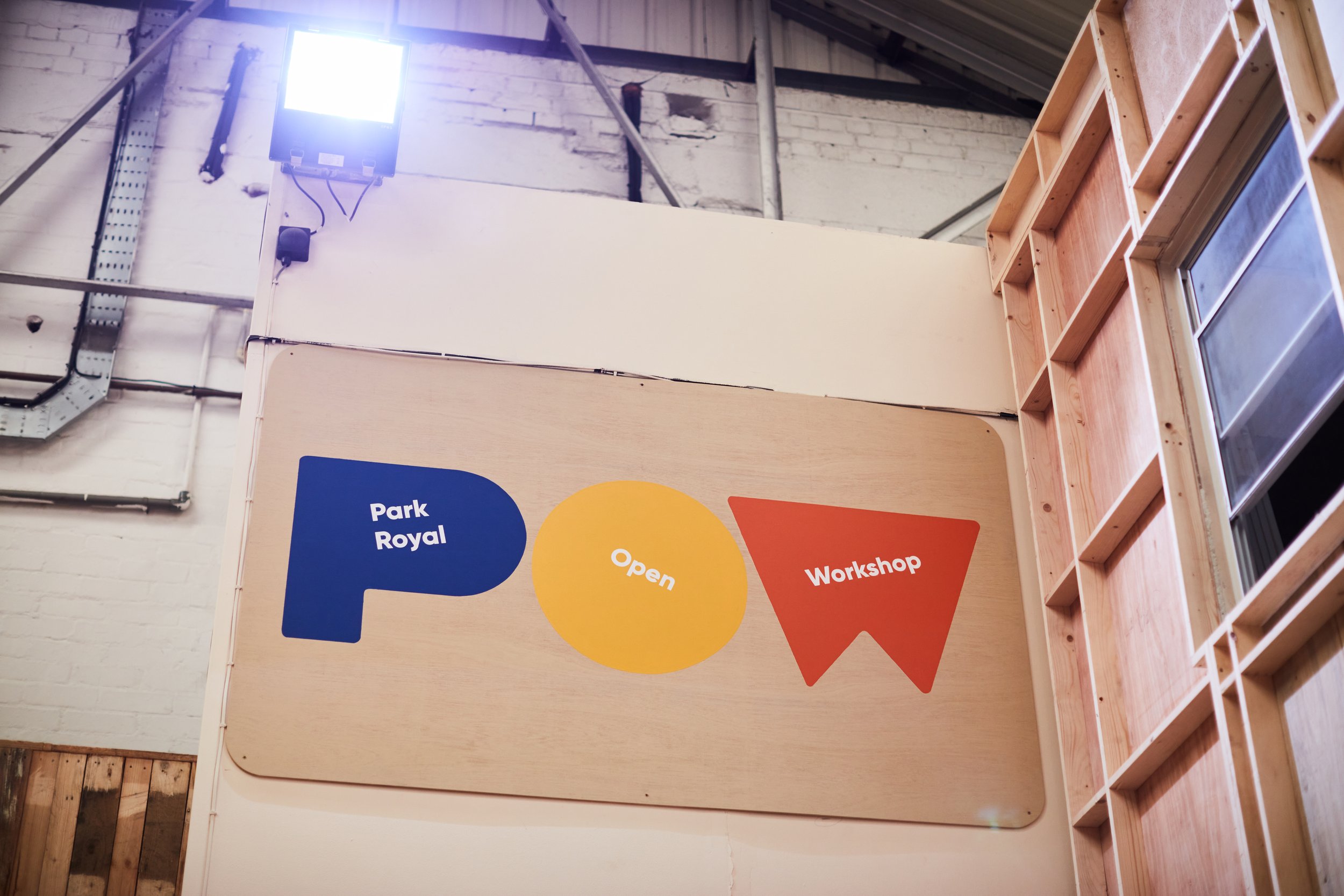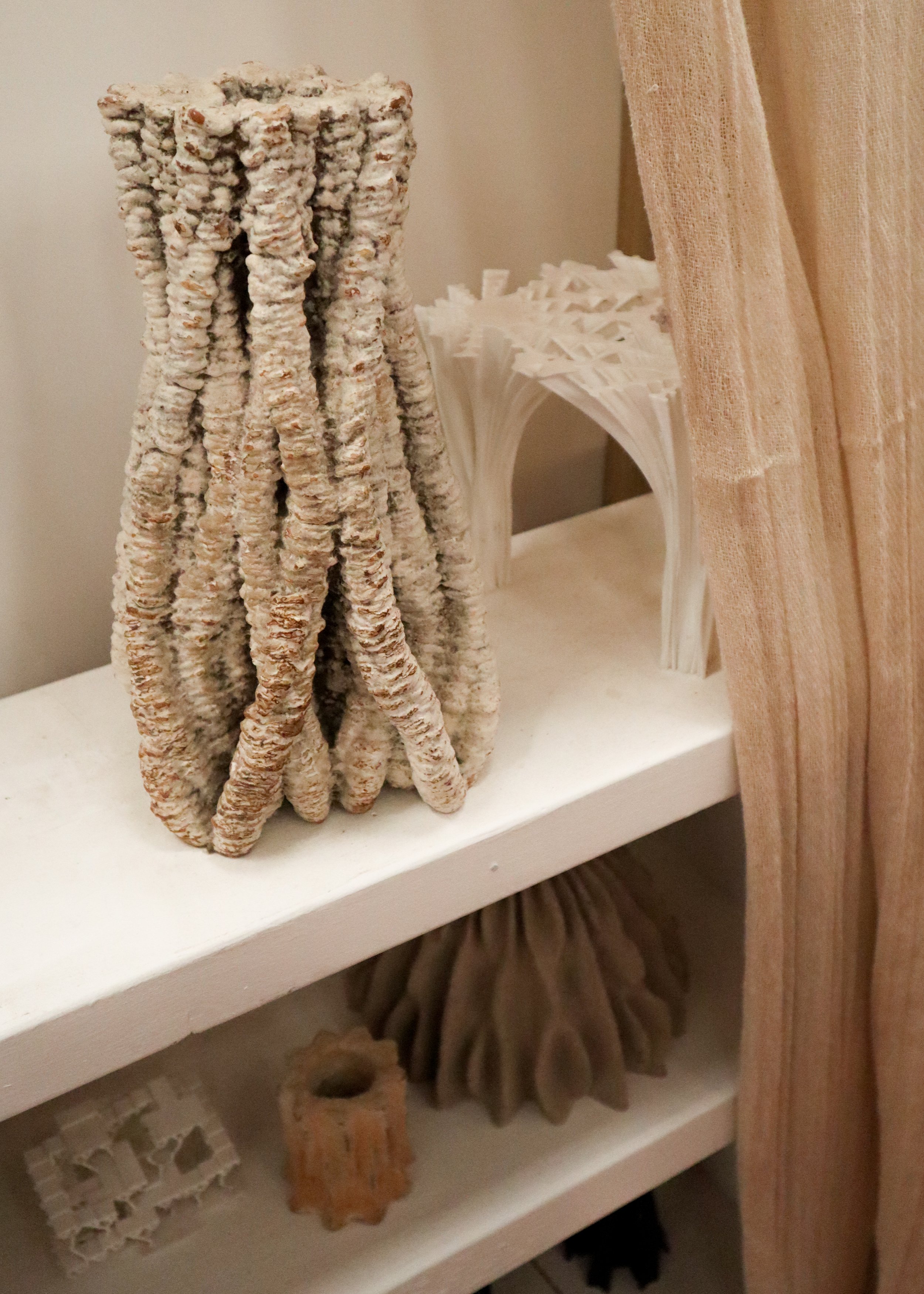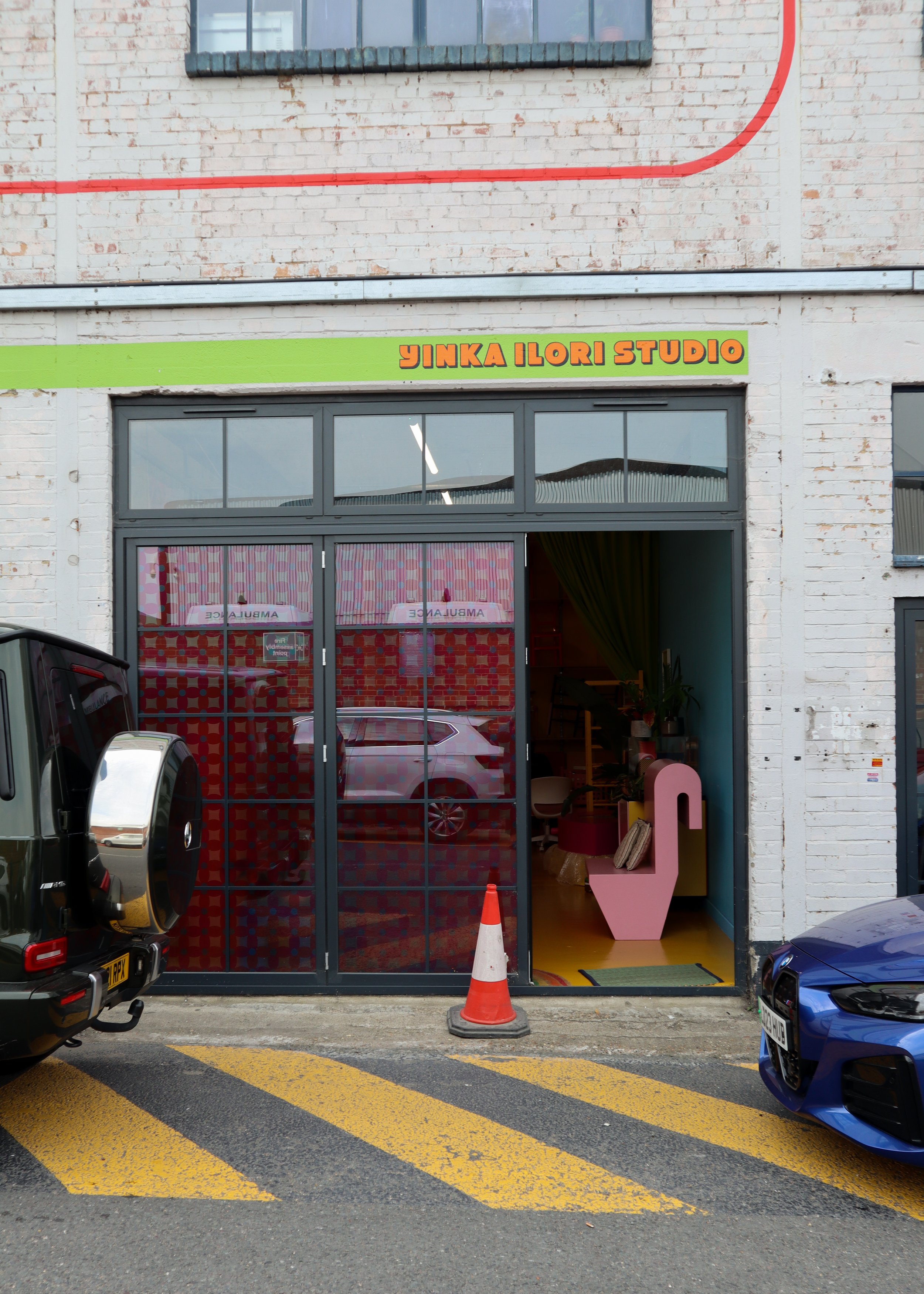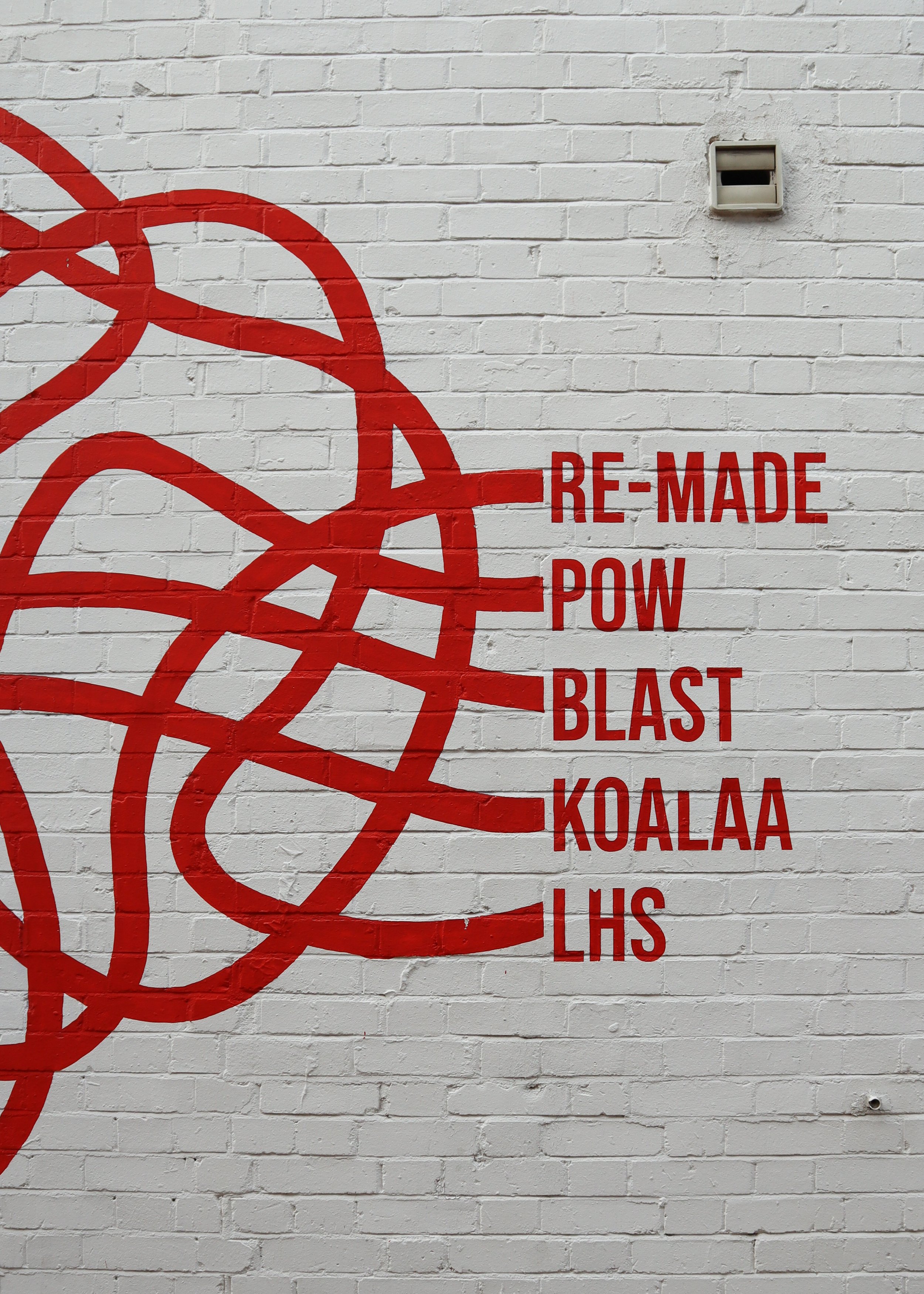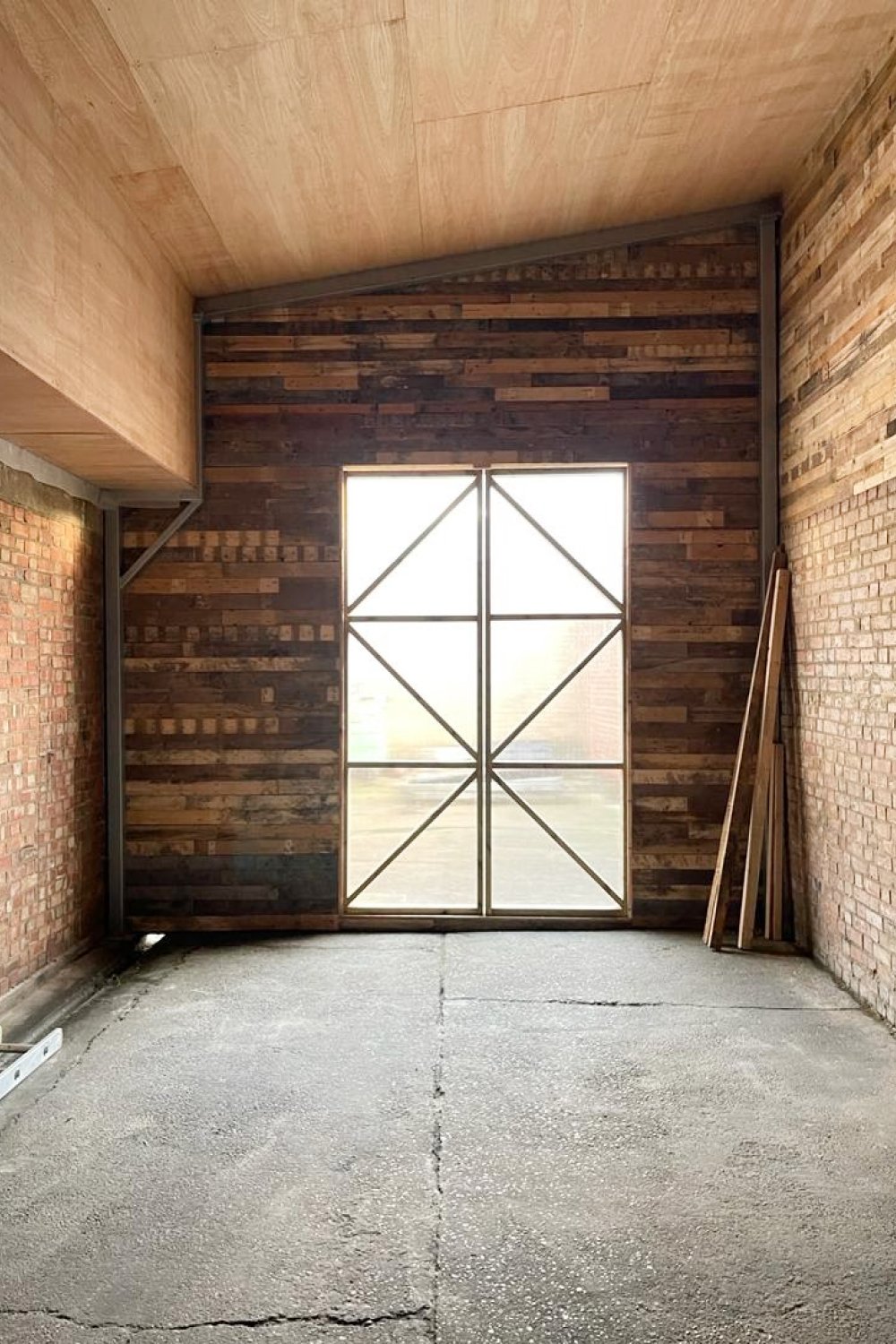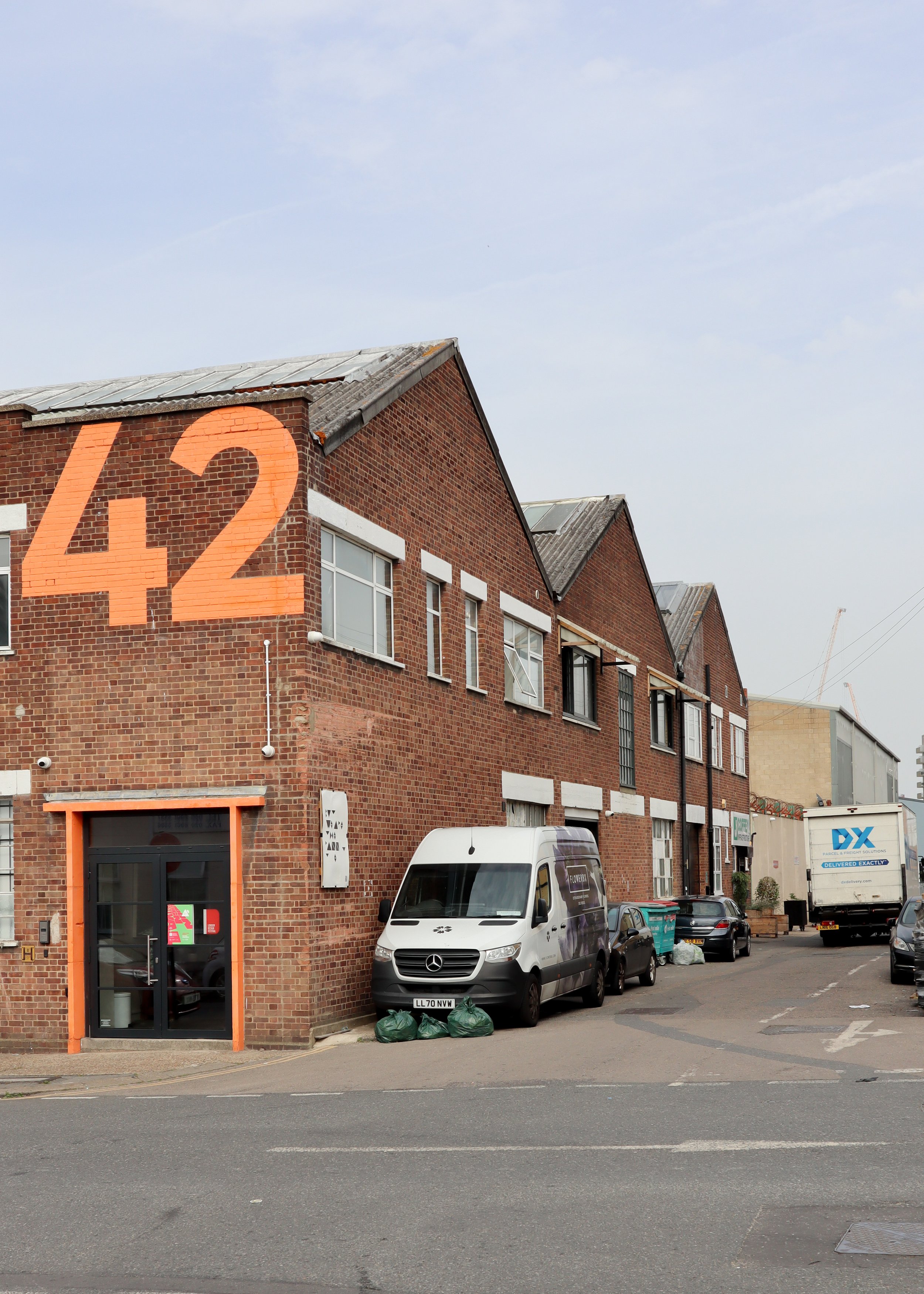A Hyperlocal Circular Salvage Yard
Re-Made is a community hub in North-West London on a zero-waste mission
Words by Harriet Thorpe
Image by James Bell
Park Royal, London’s largest industrial estate has a new circular waste hub called Re-Made. Set up in the corner of a warehouse — one of hundreds on the 500-hectare estate — the idea is that instead of hiring a skip or sending to landfill, businesses can drop off waste material to be redistributed back into the community for re-use, for free. Since opening in February 2023, Re-Made has diverted 400 wood pallets, two shop interiors, 100kg of metal, four tonnes of clay, five film sets and more from landfill and into local projects, including the interior of a boxing gym and a school’s assault course.
Nicknamed ‘London’s kitchen’, Park Royal sees over a third of London’s food passing through, either made or distributed by around 500 food businesses on the estate, including Ocado, McVities, Heinz and a growing number of ‘dark kitchens’. Amidst a healthy crop of car repair services, the film and TV industry takes advantage of the large warehouse spaces for set-building, and there’s a thriving creative community of more than 300 artists, designers, makers and musicians across several converted studios. In total there’s over 2,000 businesses employing over 40,000 people here — all colliding and creating lots of waste.
The spark of an idea found in skips
Temporary sets from Amazon, Disney and Netflix were often piled up in skips; brand new rolls of carpet and sheet timber discarded, alongside other waste such as old tyres and timber pallets galore. “I noticed lots of artists and designers were making things from waste found on the doorsteps of where they work. People were skip diving and finding marble off-cuts or unusual materials that would have gone to waste,” says Grace Williams, who has spearheaded Re-Made under her company Loom Projects, a creative consultancy for urban change that operates from Excelsior Studios, in one of the converted warehouses.
Park Royal is her patch; she worked for five years connecting local artists with developers and councils, initiating creative projects for the Mayor of London’s Park Royal Old Oak regeneration scheme, which includes the building of 1,500 new homes and the arrival of the new High Speed railway station (HS2). She founded the Park Royal Design District, which launched during London Design Festival in September 2021, and has now become an all-year-round programme of activities supporting the creative community.
Williams was therefore well-placed to join the dots. In June 2022, she initiated a conversation within the community about how businesses could work together with creatives to build a local circular economy around waste. Instead of pavement and skip diving, could there be another way to facilitate an exchange of materials? And what other lessons could be learnt along the way? Over 100 people attended her roundtable event — local councillors, developers, reps from HS2, waste companies and of course artists and designers. It resulted in some conclusions; there should be a local hub for short-term waste material storage and exchange in response to local needs.
Re-Made was born with plenty of local enthusiasm. A crowdfunding campaign raised over £30,000. Jonathan Brewin, founder of local studio provider The Republic of Park Royal and steering committee member of the Park Royal Design District, offered up a free space for a pilot phase, and funding was granted from the Old Oak Park Royal Development Corporation (OPDC) and Ealing Council. A shopfront and storage area was built using reclaimed timber. A successful first six months saw furniture made from tyres, sculptures from coffee cups, denim and leather offcuts transformed into new clothes and shoes, rope and tyres into a local school assault course, reclaimed timber for the interior cladding of a new boxing gym, and benches and planters for the neighbourhood. The potential is such that Re-Made is now recruiting a hub manager to manage all of this activity.
Image by Re-Made
Creating long-term urban change
Re-Made isn’t even one year in yet, so there’s still plenty of time for testing, learning and growth. “In the longer term, we'd like to help discourage so much waste being created in the first place. We'd like to provide a service showing people how to build something so it can be easily reused, without glue for example, so we’re doing research into best practice,” says Williams. She’s working on a clear policy about how materials must be reused sustainably, either for a permanent use or to be returned or re-used elsewhere; and is considering launching an online market space or a ‘matchmaking’ service.
There are other projects in the works, too. Earlier this year, after a donation of four tonnes of clay excavated from the tunnelling of HS2, Re-Made commissioned seven artist-makers to create a some experimental works for London Craft Week. As thousands more tonnes of clay are due to be excavated this year, it’s been a pilot to see how the material could be used on a larger scale in the public realm, from tiles to street furniture. “Watch this space,” says Williams.
“It would be great if there could be hubs like this in every town or area. But then again, Park Royal is a unique place, with the close proximity of businesses, artists, regeneration and change”
Grace Williams, image by Harriet Thorpe
Re-Made is also attracting like-minded enterprises to set up shop. It now shares its warehouse is the Park Royal Open Workshop (POW), which hosts woodworking classes and rentable workspaces with a vast array of tools available, from machines to power and hand tools, plus a digital design suite and finishing materials. Founder and director of POW, Alex Rincon Delgado, built the workshop using reclaimed wood, breaking down pallets with heavy-duty tools — along with his preconceptions about the aesthetics of reclaimed timber. It’s a far cry from his former career in finance.
The aim of the workshop is to enable anyone to affordably build, innovate and create using reclaimed materials. Supported by the Mayor of London’s Creative Enterprise Zone, OPDC and Ealing Council, it’s the perfect complement to Re-Made. For Williams, the ultimate dream is a giant warehouse where they could keep materials for longer and hire more staff, reinforcing the idea of Re-Made as a local shop front, community hub and hyperlocal circular salvage yard, repurposing waste, reducing transport emissions and thriving on connections, word of mouth and creative resourcefulness. “A key part of what we're doing is building a network,” says Williams. “It would be great if there could be hubs like this in every town or area. But then again, Park Royal is a unique place, with the close proximity of businesses, artists, regeneration and change.” Perhaps Park Royal has all the right ingredients for this pilot to take off and fly – in circles, of course.



